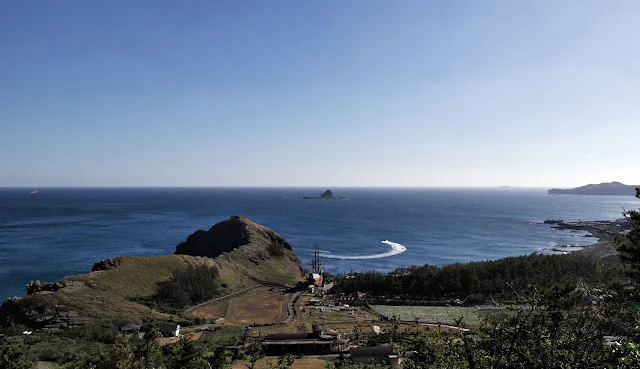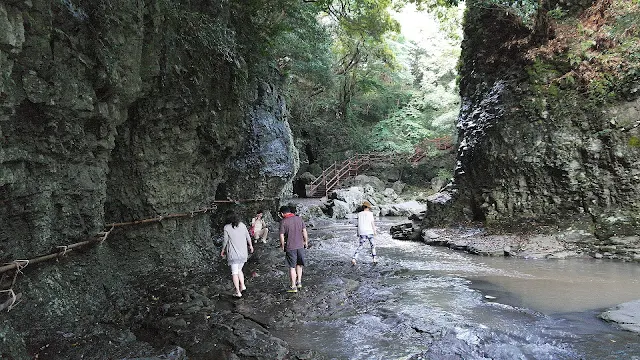*
Hi!. Are you looking for a tour program to feel a real Jeju island?
Then,
congratulation! Because you have come to the right site. As I am an expert of
Jeju island I have thoughtfully selected the places where you can feel and
experience deep inside of Jeju. Whichever courses you take, it will save your
precious time and you will feel real Jeju island. I am sure this program give
you more pleasure than those of any other agencies.
Daily
tour course4 (Western part of Jeju island)
Price:
270.000KRW(base on 3 people)+40.000KRW for each
additional person.
Included: English speaking tour guiding,
Transportation, Entrance fee for the touristic attractions.
Excluded: Accommodation, meals.
Tour
duration: 9am~6pm
*Notice-
This is a trekking program
Tour
courses4 (Western part of Jeju island)
1.
Baelitnae cliff & Chenjeyeon waterfalls
2.
Sanbangsan
3.
Lunch
3.
Hwasoon gotjawal(lava forest)
4.
Songaksan volcanic crater
5.
Arttre used to be an air field during ww2
Point of the Tour course4: Do you want to avoid
touristic attractions? Are you ready for taking a walk in oder to feel deep
inside of Jeju island? Then I strongly recommend this program. In this course
you can see real Jeju island. We will start from Baelitnae cliff(star cascading
cliff) to Chenjeyeon waterfalls in the morning. There are mysterious shamanic
shrine and buddhist temple on the way.
In
1564, Hamel and his crews got shipwreck on the shore near Sanbangsan lava dome.
After 13 years later they went back to their country and got western people know
about korea first time. We are going to walk Sanbangsan and visit Hamel museum
as well as climbing a beautiful volcanic crater.
Jeju
island is a biological heritage of the world by UNESCO because it is a habitat
of diverse plants from tropical to tundra ones in the lava forest. We are going
inside a lava forest that is regarded a natural botanical garden.
Japan
used Jeju island for defend their territory against Allies and it became a last
defence line. For attacking to China, Japanese built a huge air field on the
west of Jeju island. You can imagine how serious the war was. In this course we
are going to see and feel the vestiges of the war.
1.
Baelitnae cliffs & chenjeyeon waterfalls
Baelitnae
means star cascading cliff and it is located in an estuary of Chenjeyeon
waterfalls. Walking through luxuriant forest you will stop by a shamanic shrine
and buddhist temple. It take around 1 hour to finish this
course.
2.
Sanbangsan
Sanbangsan
is an gigantic lava dome located on the west of Jeju island. It has a natural
cave which has been a buddhist monastery for 800 years and on the foot of the
open sea there is 'Hamel museum'.
You
can learn knowledge and bit of history of Jeju island in this place.
Sanbangsan
& Yongmeri coast are UNESCO Geopark.
3.
Hwasoon gotjawal(Lava forest)
Gotjawa
means lava forest in Jeju dialect. There are 4 Gotjawals in
Jeju island.
Hwasoon Gotjawal
is
one of them. They are UNESCO biological heritage of the world. Walking
through Gotjawal
will
be precious experience in Jeju travel.
4.
Songaksan volcanic crater
The
volcano erupted twice 80,000 and 7000 years ago in Songak Mt. It is a double
volcanic crater. Altitude of the Mountain is not high but the crater itself is
so deep and it gives a magnificent view. You can see the most southern island of
Korea named 'Marado' at one view. This crater was used as a military base by
Japanese during world war 2. Military exavations and bunkers are still
remain.
Songsak
Mt is a worth place for not only scenery but also history
5.
Arttre
used to be an air field during ww2
Arttre
air field was built for a military air base by imperial Japan in order to invade
China in 1930s. The Japanese Zero sun fight taken off from Japan stoped over
here to supplement fuel and bombs and bombard in Nanjing in China. By 1940s the
war expanded into pacific ocean this air field became a main target of
Allies.
The
Japanese final defending operation called 'Kamikaje' was trained in this Arttre
air field. 20 airplane hangers, a control tower, and several under ground
bunkers are still preserved.
Contact
e-mail: donghak1008@gmail.com






No comments:
Post a Comment